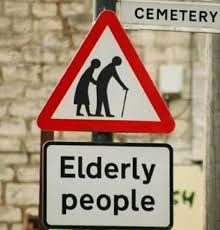It’s a law nearly as inescapable as the law of gravity.
That meant I was, from childhood, regularly exposed to Jewish humour. Broadly, there are two great categories of jokes about Jews. On the one hand, there are those told by anti-Semites which target the supposed meanness and deviousness of Jews, and are desperately unfunny because they are so heavily marked by hatred. I shan’t be repeating any of them.
On the other hand, there are the jokes told by Jews about themselves. They highlight supposed characteristics of the Jew in a stereotype to which, I’m sure, no Jew really corresponds, but they are often brilliantly witty precisely because they are marked above all by wryness and a certain love.
For instance, a woman meets a young mother pushing a double buggy.
“Oh, what a lovely baby,” she says.
“Which one?” asks the mother, “the lawyer or the doctor?”
But one of my favourites concerns a mother with her son on a Tel Aviv bus. She keeps talking to her son in Yiddish even though the son always replies in Hebrew. Eventually, one of the other passengers turns to the mother and points out:
“Madam, your son is a citizen of the state of Israel. Our official language is Hebrew. You should be encouraging him to speak it.”
“Yes,” she replies, “but I don’t want him to forget he’s Jewish.”
I like that joke because of a profound truth at its core. There is a particular kind of Jewishness characterised, above all, by European Jewry with its Yiddish-speaking roots. That community reacted to persecution by loathing all persecution. It voted massively left of centre, it proclaimed a doctrine of tolerance, it was in the best and deepest sense of the word, liberal.
It would not have dreamed of believing that a Palestinian, as a Palestinian, was entitled to fewer rights than anyone else. It would have laughed to scorn the idea that such a Palestinian might be persecuted by a Jew. “We, the perpetual victims of racism, to be perpetrators of racism ourselves?”
Sadly, that is a set of attitudes that seems out of vogue in Israel. The nation that speaks Hebrew is far less imbued with those values, which I cherish, than the nation that spoke Yiddish once was. It makes Israel far less the home of certain kinds of Jews than it might have been.
But not all Jews find their home in Israel anyway. The Jewish Agency apparently believes that something like 5.3m Jews, just 100,000 fewer than in Israel, live in the US. It used to be said that many American Jewish families would of course eventually settle in Israel, showing solidarity with their brethren there – but only once the sons were past military age.
There was also a story in the community about a suggestion that American Jews might be given their own soveriegn state within US territory, but it had to be turned down when no one could be found to agree to serve as Ambassador to Israel.
Right now, the papers are proclaiming that the British Labour Party is suffering a crisis of anti-Semitism. Jim Callaghan, Labour Prime Minister in the 1970s, once famously said of some economic difficulties the country was suffering, “crisis? What crisis?” He was made to pay for the words by a self-righteous press that found he wasn’t taking them seriously enough.
I’m inclined, today, to say “anti-Semitism crisis? What crisis?”
 |
| Naz Shah in the House of Commons: the MP now suspended from the Labour Party |
It may not have been particularly funny. But was it any worse than the joke, from inside the Jewish community, about no US Jew wanting to serve as Ambassador to Israel? Or anything like as deadly as some of the barbs that have been thrown our way down the ages?
Why aren’t we able simply to grin, shrug our shoulders and walk away from it?
We are in the closing stages of a US Primary Election campaign which is likely to see Donald Trump win the Republican nomination. This man has said that he would be prepared, as President, to exclude all Muslims from entering the US for a period.
It strikes me that this kind of Islamophobia, which extends far beyond Trump, is much more pernicious than the occasional outbursts of anti-Semitism that we see. And when it comes to offensive remarks, it is far more brutal than her weak joke.
We Jews of the diaspora used to represent some pretty admirable values, which we’ve rather lost recently – most British Jews today vote Tory. But it feels to me that we’re also in danger of losing our sense of perspective. And worse still, the sense of humour which we retained even through the Holocaust.
Now that would be a truly lamentable loss.













